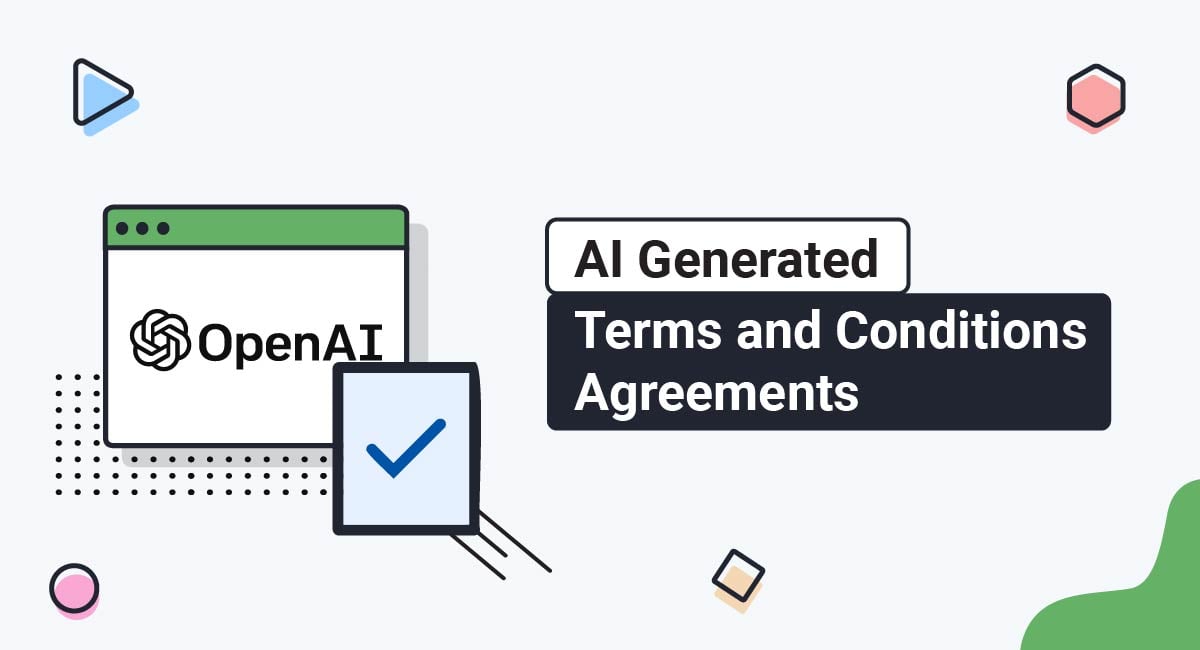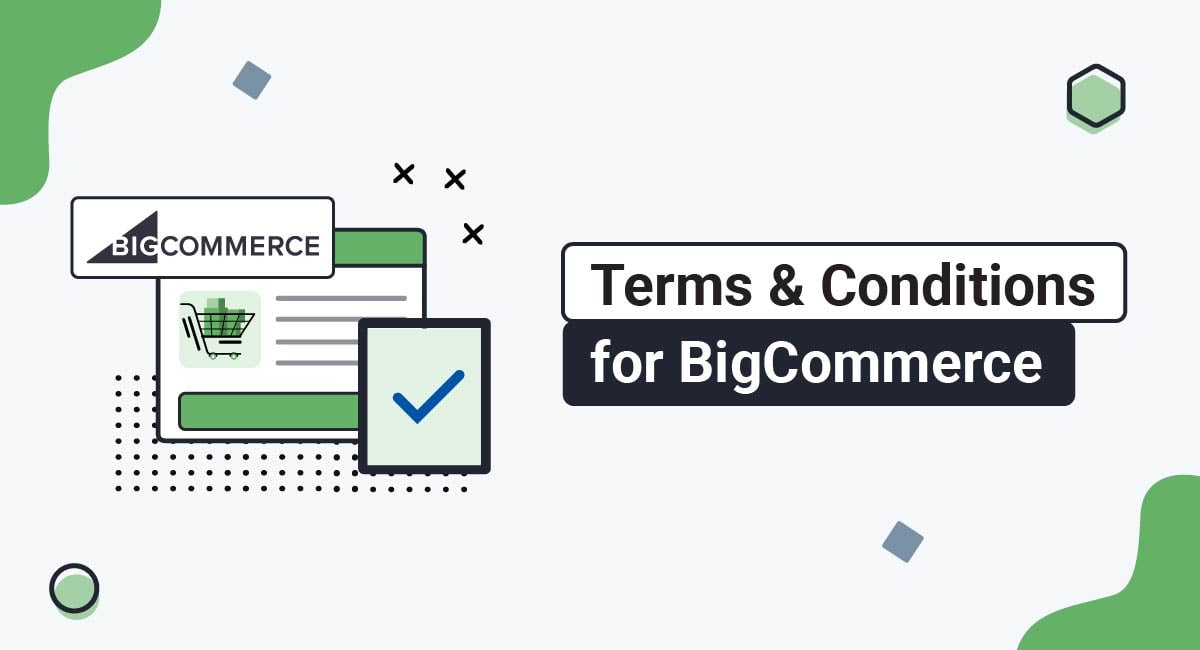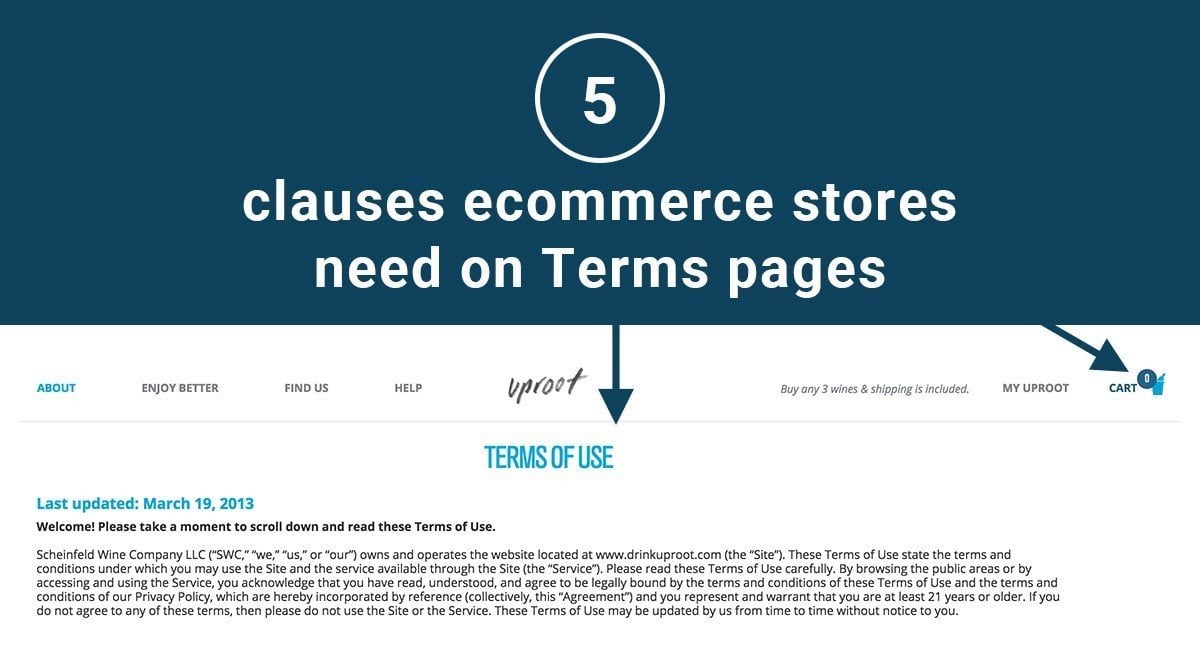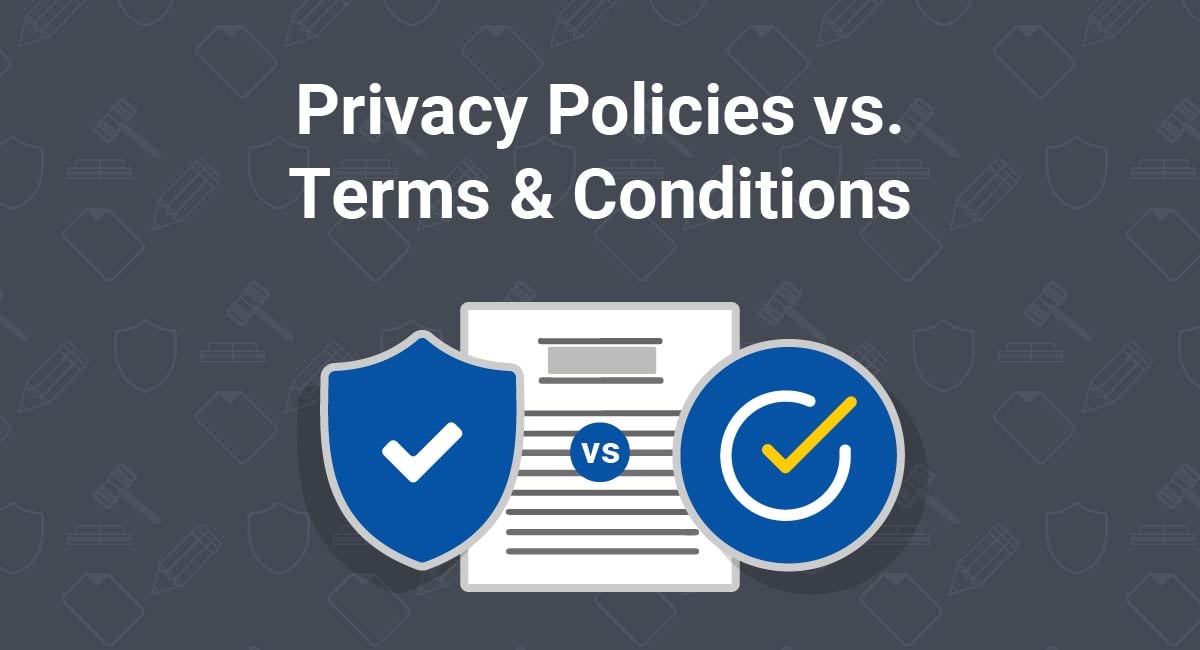AI is everywhere these days. But should you use it to generate a Terms and Conditions agreement (T&C)?
This article will explain the limits of AI by using it to create actual Terms and Conditions agreements and then comparing the results to professionally-created Terms agreements.
Our Terms and Conditions Generator makes it easy to create a Terms and Conditions agreement for your business. Just follow these steps:
-
At Step 1, select the Website option or the App option or both.
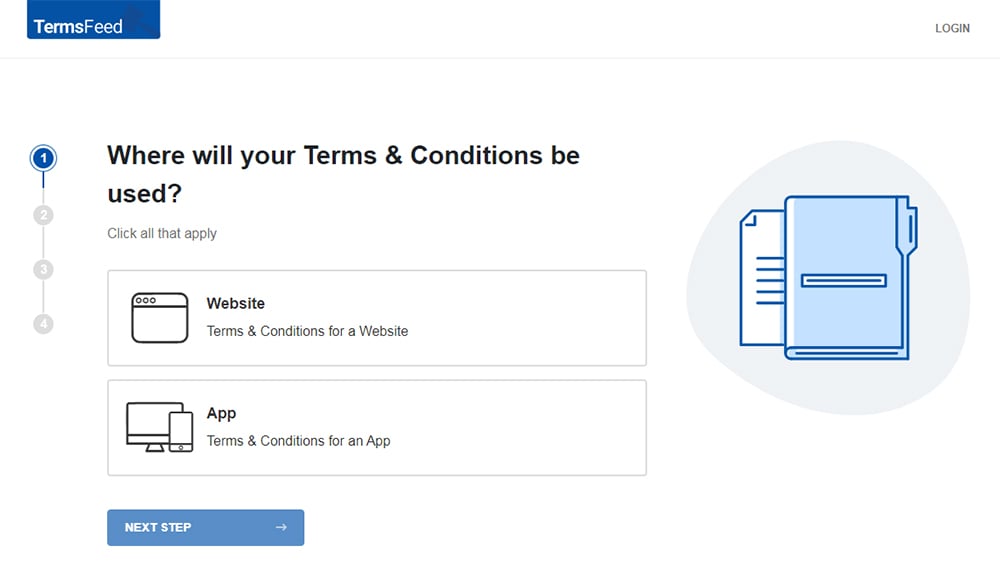
-
Answer some questions about your website or app.
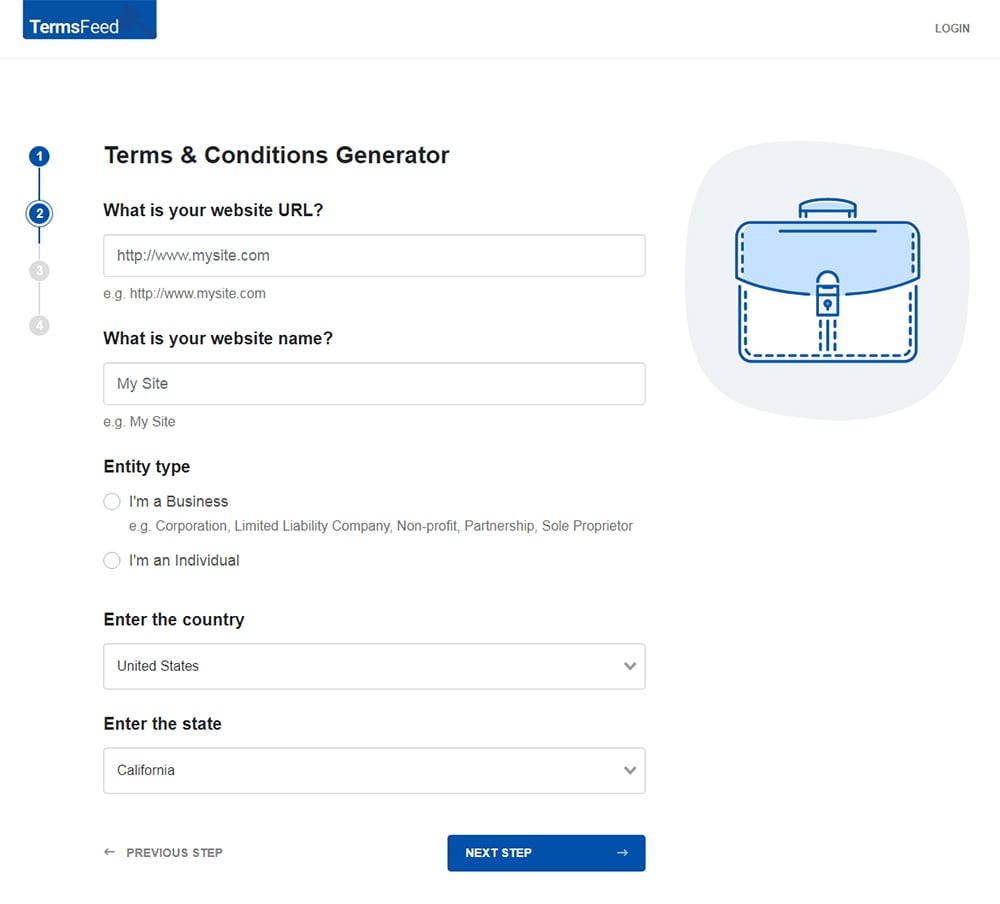
-
Answer some questions about your business.
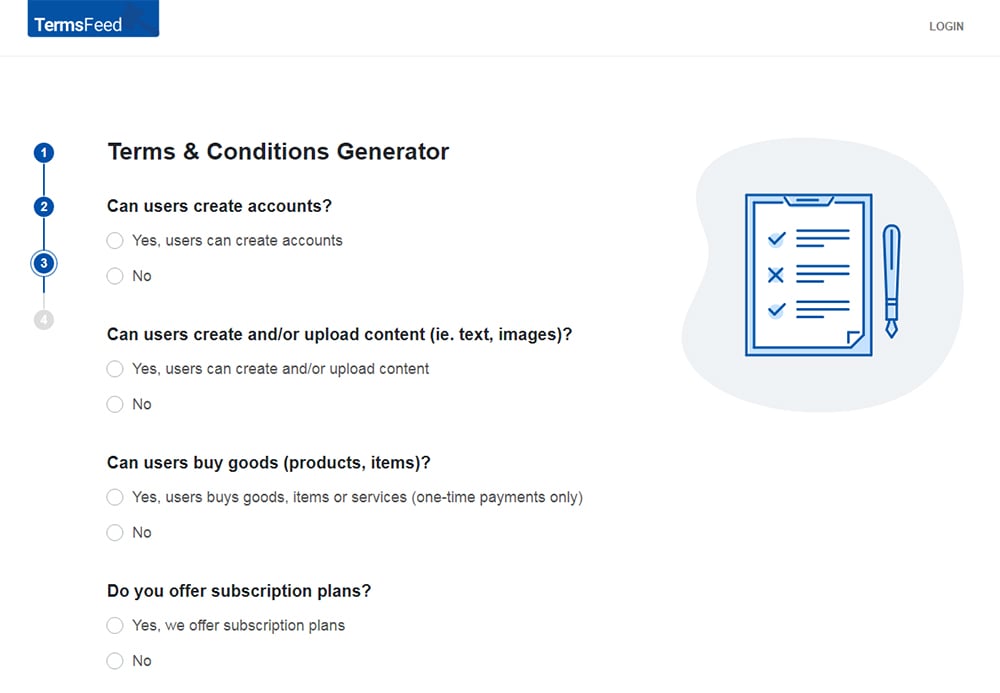
-
Enter the email address where you'd like the T&C delivered and click "Generate."
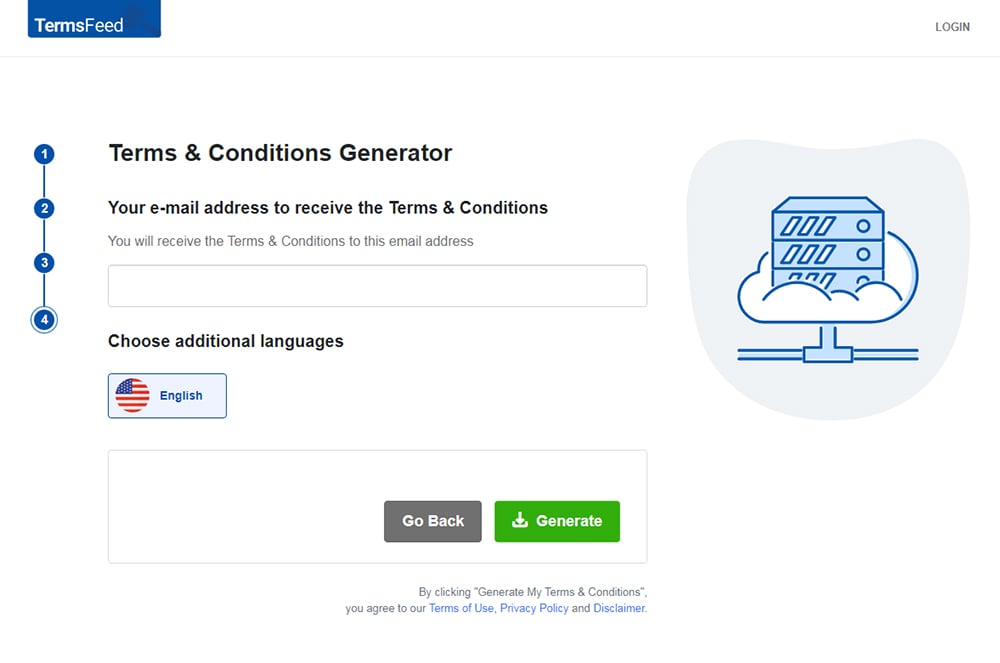
You'll be able to instantly access and download the Terms & Conditions agreement.
- 1. What is AI and ChatGPT?
- 2. Can I Use ChatGPT to Generate a Terms and Conditions Agreement?
- 3. What are the Pitfalls of Using AI to Create Terms and Conditions Agreements?
- 3.1. The Shortage of Legal Knowledge
- 3.2. The Inefficiency of AI
- 3.3. The Excessive Time and Effort Expended with AI
- 3.4. What's it Like to Use ChatGPT to Create Terms and Conditions Agreements?
- 3.5. Do We Recommend Using AI/ChatGPT to Create a Terms and Conditions Agreement?
- 4. Testing ChatGPT for Terms and Conditions Creation
- 5. Test 1: Use ChatGPT to Write a Terms and Conditions Agreement for TermsFeed.com
- 5.1. Length and Detail
- 5.2. Definitions Section
- 5.3. Products and Ordering Process
- 5.4. Legal Disclaimer and Responsibility
- 5.5. User Accounts and Privacy Policy
- 5.6. Promotions
- 5.7. Tone and Language
- 5.8. The Verdict on Test 1
- 6. Test 2: Write a Terms and Conditions Agreement for an Ecommerce Website
- 6.1. Company-Specific Information
- 6.2. Payment Information
- 6.3. Delivery Time and Shipping
- 6.3.1. Claims and Liability
- 6.4. Returns and Privacy Policy
- 6.5. The Verdict on Test 2
- 7. Test 3: Write a Terms and Conditions Agreement for a Mobile App
- 7.1. License and Scope of Use
- 7.2. Intellectual Property and Use of Content
- 7.3. The Verdict on Test 3
- 8. Test 4: Write a Terms and Conditions Agreement for a SaaS Website
- 8.1. Content and Conduct Rules
- 8.2. Intellectual Property Rights
- 8.3. The Verdict on Test 4
- 9. Why Should You Be Cautious When Using ChatGPT for Terms and Conditions Agreements?
- 10. Summary
What is AI and ChatGPT?
Artificial Intelligence (AI) refers to machines that exhibit cognitive functions typically associated with human intelligence, including learning, reasoning, understanding concepts, and recognizing patterns.
AI-enabled machines can perform a variety of autonomous tasks, from creating art to running self-driving cars and fighting against cyber threats.
ChatGPT, developed by OpenAI, is an example of AI's capabilities. 'GPT' stands for Generative Pretrained Transformer, a term that refers to a series of large language models (LLMs).
These LLMs use deep learning to mimic human patterns of processing information, allowing ChatGPT to be trained.
With access to a vast dataset comprising millions of examples of written words, ChatGPT can recognize intricate patterns, syntax, and language styles. This enables it to engage in human-like conversations and create different forms of written content, such as social media posts, essays, code, and emails.
Can I Use ChatGPT to Generate a Terms and Conditions Agreement?
While ChatGPT does have the ability to create a T&C, the quality and relevance to your specific needs might be lacking.
AI lacks the nuanced understanding of legal intricacies and individual business requirements needed for such a specialized task. Therefore, the use of ChatGPT for drafting Terms and Conditions agreements is not inadvisable.
What are the Pitfalls of Using AI to Create Terms and Conditions Agreements?
While AI may initially seem adept, it is often found lacking when it comes to generating tailored Terms and Conditions agreements. The human touch and the nuanced understanding essential for creating specific legal agreements are aspects AI simply cannot replicate.
Here are four critical pitfalls to using AI to create your Terms and Conditions agreement.
The Shortage of Legal Knowledge
AI platforms like ChatGPT are limited to the knowledge they had at the time of their last update. In contrast, Terms and Conditions templates provided by trusted platforms like TermsFeed are consistently updated to reflect the latest legal changes.
These templates are designed with current legal expertise, ensuring that your Terms and Conditions agreement remains relevant and legally sound.
The Inefficiency of AI
Presently, AI tools, including ChatGPT, fall short when it comes to generating legally compliant Terms and Conditions agreements. Even with explicit prompts, human review is essential to edit, restructure, and scrutinize the document for any legal discrepancies and consistency errors.
The inherent limitations of AI regarding accuracy and context-specific relevance pose considerable risks in legal scenarios that demand absolute precision.
While AI like ChatGPT lacks the human discretion necessary for unique legal circumstances, Terms and Conditions templates are crafted by legal experts who understand these nuances. They integrate industry best practices and cater to standard business requirements, reducing the likelihood of biased or inappropriate content.
Using a template approach ensures your Terms and Conditions agreement is comprehensive, legally secure, and custom-fitted to your business needs.
The Excessive Time and Effort Expended with AI
Finally, the effort needed to craft a legally sound Terms and Conditions agreement using AI is much higher compared to using a Terms and Conditions generator. The interactive process with ChatGPT - providing prompts, making corrections, supplying information - consumes significantly more time and effort than the few minutes required by a Terms and Conditions generator.
Even after this labor-intensive process, there remains lingering uncertainty about the legal adequacy of your agreement.
What's it Like to Use ChatGPT to Create Terms and Conditions Agreements?
During our trials with ChatGPT to construct a detailed Terms and Conditions agreement, it became clear that while AI could produce reasonable initial drafts, each part of the resulting document needed thorough review and scrutiny.
Every version initiated a cycle of edits, revisions, and alterations.
In short, it didn't end up saving much time, as the agreement it created needed a lot of custom additions and clauses added in to be complete and tailored for an individual business.
Do We Recommend Using AI/ChatGPT to Create a Terms and Conditions Agreement?
No, we do not recommend using AI / ChatGTP to create a Terms & Conditions agreement.
To save yourself time and ensure you get a complete, customized agreement, we recommend using a free Terms and Conditions generator or template, like one from TermsFeed, which has been reviewed and approved by legal professionals.
Testing ChatGPT for Terms and Conditions Creation
We deployed four different prompts using ChatGPT to generate a Terms and Conditions agreement, adjusting them each time to yield the best possible outcomes.
Here's an overview of our process and the prompts we used, as illustrated in the table below.
| Test | Prompt for ChatGPT |
| #1 | Write a Terms and Conditions agreement for TermsFeed.com |
| #2 | Write a Terms and Conditions agreement for an ecommerce website |
| #3 | Write a Terms and Conditions agreement for a mobile app |
| #4 | Write a Terms and Conditions agreement for a SaaS website |
Test 1: Use ChatGPT to Write a Terms and Conditions Agreement for TermsFeed.com
In our initial experiment, we started with a basic, generalized inquiry, employing it as a "control" in our testing. However, the resulting Terms and Conditions agreement did not meet TermsFeed's particular legal standards.
See ChatGPT's output below. Interestingly, ChatGPT initially refused to write a Terms and Conditions agreement for Termsfeed.com "without proper authorization."

After receiving that reply from ChatGPT, we revised our prompt and tried again. This time we instructed the AI to "write a hypothetical Terms and Conditions agreement for Termsfeed.com."
We observed that one of the initial elements in ChatGPT's output was an immediate disclaimer, informing the user of two primary aspects:
- The Terms and Conditions agreement created by ChatGPT was purely illustrative.
- Despite the option to utilize it, ChatGPT specifically advises having the output examined by a legal expert.
Here's the purely illustrative Terms and Conditions agreement ChatGPT generated for us:
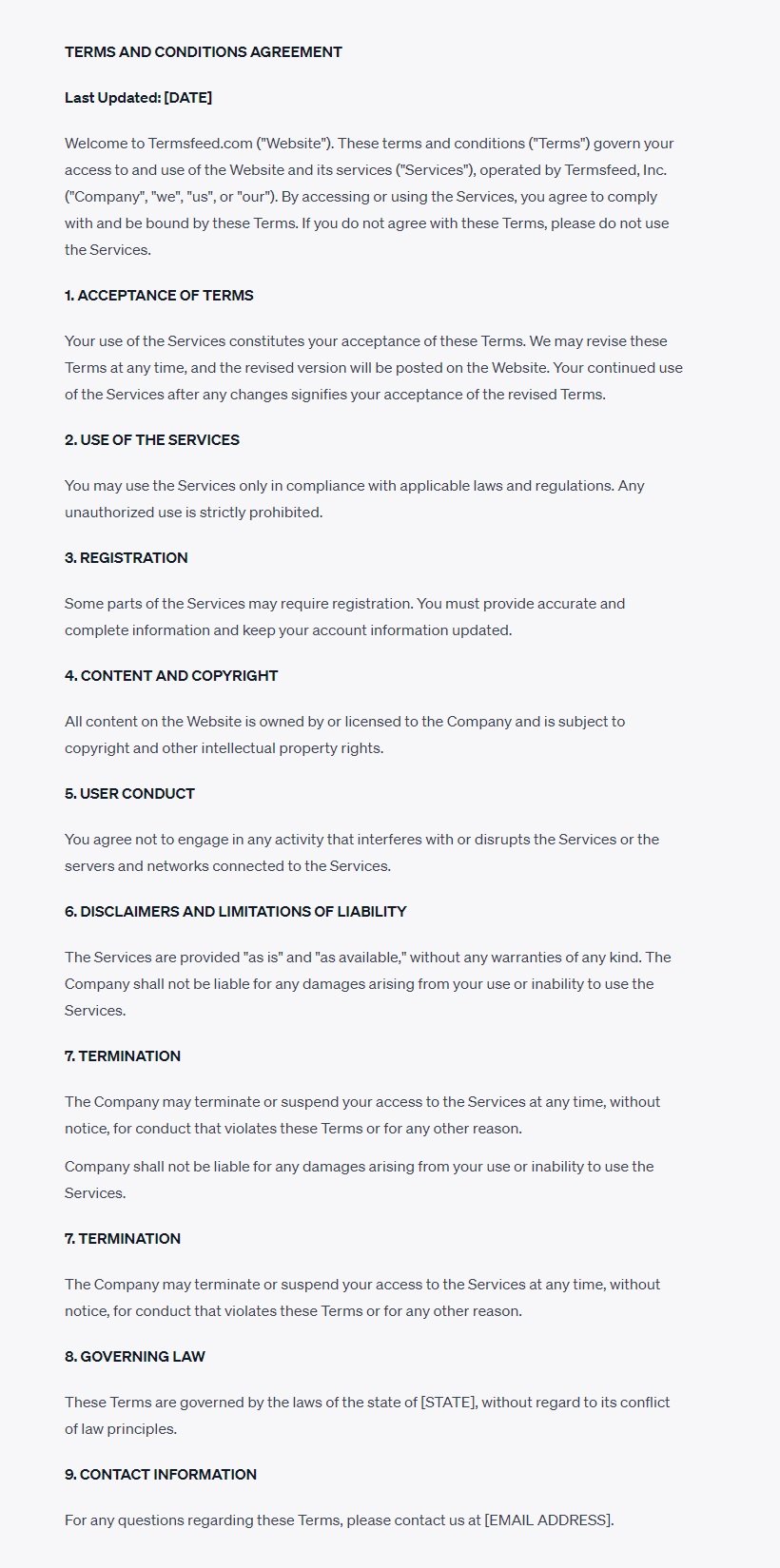
Here are the differences between ChatGPT's output and our own Terms and Conditions agreement.
Length and Detail
- ChatGPT's Terms: This version is more of an overview, covering the basics.
- TermsFeed T&C: We went deeper, offering detailed explanations on every aspect of our service to make sure everything's crystal clear to our customers.
- Why It Matters: Tailoring Terms ensures that you've covered everything relevant to your business, which helps minimize legal risks.
Definitions Section
- Hypothetical Terms: It's a bit more general without specific definitions.
- TermsFeed T&C: We added a handy "Interpretation and Definitions" section to clarify the meaning of essential terms.
Why It Matters: Clear definitions prevent misunderstandings and help in dispute resolution.
Here's how the TermsFeed Definitions section looks:

Products and Ordering Process
- ChatGPT's Terms: This section is missing.
- TermsFeed T&C: We care about our customer's user experience, so we've outlined everything about placing orders, cancellations, refunds, and pricing.
Why It Matters: Providing essential details on your sales process ensures customers know their rights and responsibilities, enhancing their trust.
Here's an excerpt of how TermsFeed's relevant section looks:
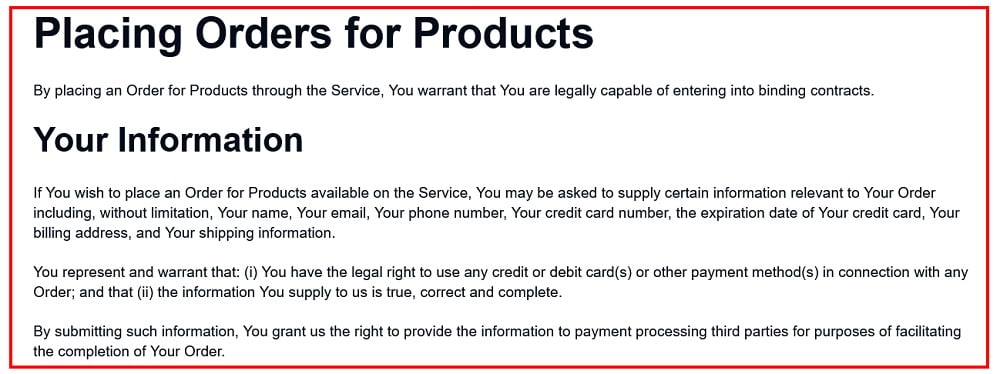
Legal Disclaimer and Responsibility
- ChatGPT's Terms: It has general disclaimers.
- TermsFeed T&C: Like most businesses, we're specific here, explaining that we offer no legal advice and emphasizing the responsibility of our customers to make sure everything fits their needs.
Why It Matters: Clarifying the legal relationship between you and your users reduces liabilities. Also, the more specific your disclaimers are, the more likely they are to offer legal protections.
Here's an excerpt of how TermsFeed's relevant section looks:
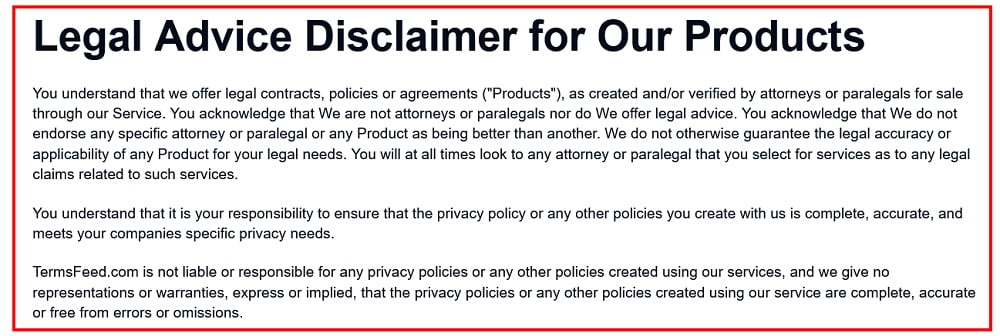
User Accounts and Privacy Policy
- Hypothetical Terms: Not included.
- TermsFeed T&C: Our customer accounts and their privacy are important to us, so we've laid out how to create an account and the importance of complying with our Privacy Policy.
Why It Matters: Proper account management and privacy adherence reinforce customer confidence.
Here's how TermsFeed's relevant section looks:

Promotions
- ChatGPT's Terms: No information on promotions.
- TermsFeed T&C: We like to keep things fun with promotions, and we've made sure to explain how they work.
Why It Matters: Transparency in promotions fosters fairness and keeps customers coming back.
Here's how TermsFeed's relevant section looks:

Tone and Language
- ChatGPT's Terms: A bit more generalized.
- Termsfeed T&C: We've kept it professional but approachable, using clear language defined right in the document.
Why It Matters: Your Terms and Conditions should reflect your brand voice and make legal aspects accessible to your audience.
The Verdict on Test 1
When viewing the comparison above, the necessity for personalization becomes clear. Our TermsFeed Terms agreement isn't just a generic template. it's crafted with precision to align with our specific business needs.
In the same way, as someone running a business, you must recognize that your Terms and Conditions aren't just legal fine print. They're a reflection of your brand, a guide to how you operate, and a statement of how you value your customers.
Choosing generic terms written by AI may seem convenient, but it's practically guaranteed that it overlooks vital aspects of your particular business.
Let's take a look at some more examples.
Test 2: Write a Terms and Conditions Agreement for an Ecommerce Website
In the following section, we'll explore how ChatGPT constructed a Terms and Conditions agreement for an online shopping platform.
By comparing the agreement it created to a real ecommerce website's Terms and Conditions agreement, we'll highlight how and where AI failed.
Here's the agreement generated by ChatGPT:
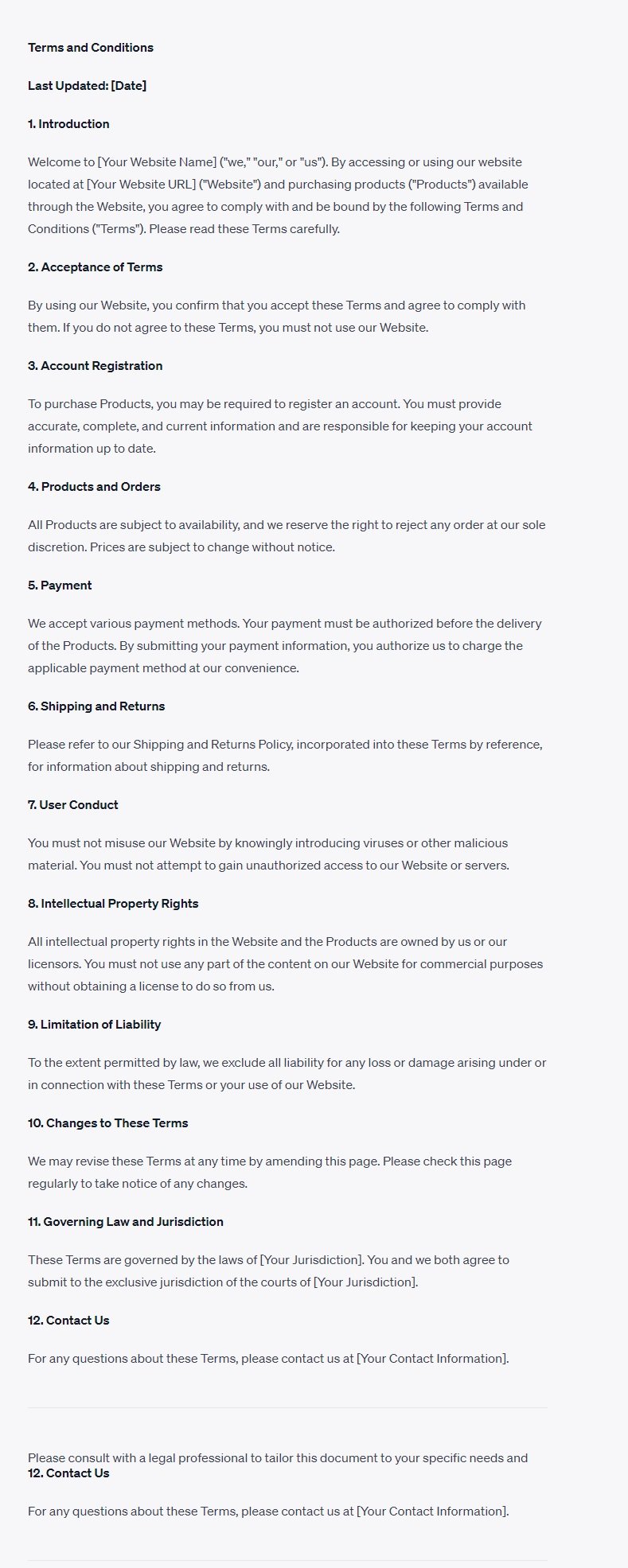
In this test, ChatGPT provided a generic Terms and Conditions agreement, although its output took into account the T&C was supposed to be for an ecommerce store.
The T&C has clauses on such things as:
- Products and orders
- Payments
- Shipping and returns
However, in comparison to the Terms and Conditions agreement we took from Hiut Denim Co., a top Shopify ecommerce store, ChatGPT's effort is sorely lacking. Let's look at the differences.
Company-Specific Information
- ChatGPT's Terms: Lacks specific company information. Instead, it's designed to be a template that can be customized.
- Hiut Denim Co. T&C: Contains detailed company registration information, including VAT Number and specific definitions related to Hiut Limited.
Why it Matters: The specific information in Hiut Denim's T&C adds a layer of transparency and legal compliance, which can build trust with customers. Business owners need to include precise details tailored to their own business.
Here's what Hiut includes:

Payment Information
- ChatGPT's Terms: More general in payment description, without specifying methods.
- Hiut Denim Co. T&C: Details the payment process, including the use of PayPal and explicit statements about privacy and data sharing.
Why it Matters: Specifying the payment process and privacy details can add confidence to the buyer's journey. The customization in Hiut Denim's T&C illustrates the need to align the Terms with the actual payment process used by the business.
Here's what Hiut includes:
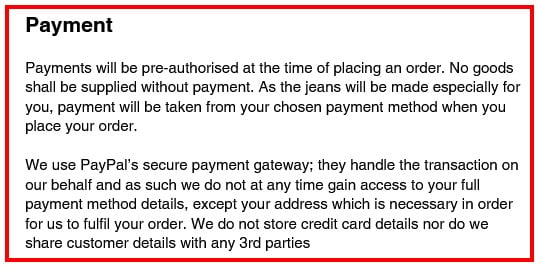
Delivery Time and Shipping
- ChatGPT's Terms: Only refers to the Shipping and Returns Policy without specifics.
- Hiut Denim Co. T&C: Provides a detailed explanation of shipping methods and expected delivery times for different regions.
Why it Matters: Clear and detailed information on shipping, as seen in the Hiut Denim's T&C, is critical for customer expectations and satisfaction. Tailoring this section ensures that customers have realistic expectations based on actual shipping practices.
Here's what Hiut includes:
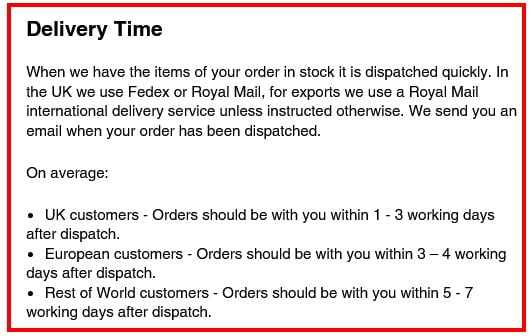
Claims and Liability
- ChatGPT's Terms: More broadly outlines limitations of liability without a specific claims process.
- Hiut Denim Co. T&C: Offers specific guidelines for claims and clearly states the company's liability limits.
Why it Matters: The specific details in Hiut Denim's T&C regarding claims provide a clear roadmap for addressing potential issues. Tailoring these sections to fit your company's practices helps reduce ambiguity and potential legal disputes.
Here's what Hiut includes:
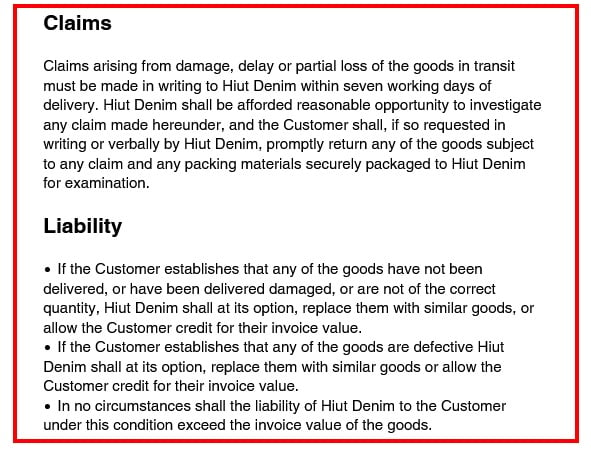
Returns and Privacy Policy
- ChatGPT's Terms: These areas are less detailed and require customization.
- Hiut Denim Co. T&C: Specifies return policy in alignment with UK's regulations and includes a commitment to privacy.
Why it Matters: Ensuring that return policies are in accordance with local laws, as illustrated in Hiut Denim's T&C, is essential for compliance. Including privacy commitments fosters trust and meets regulatory requirements.
Here's what Hiut includes:
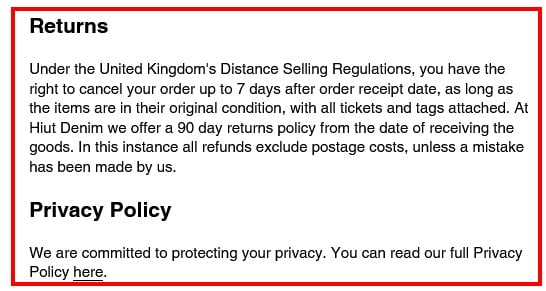
The Verdict on Test 2
The comparison between Hiut Denim's Terms agreement and ChatGPT's generic ecommerce store Terms emphasizes the importance of customization to align with a specific business's practices, legal jurisdiction, and customer expectations.
For business owners, this translates to clear communication, legal compliance, customer trust, and a smoother purchase process.
Test 3: Write a Terms and Conditions Agreement for a Mobile App
For our third test with ChatGPT, we decided to focus on Terms and Conditions agreements for mobile apps. We'll look at the AI version and compare it to Rite Aid's real-life T&C.
Here's the agreement as generated by ChatGPT:

ChatGPT provided a generic Terms and Conditions agreement that did take into account the fact that we're looking to draft a document for a mobile app.
It provided clauses that are typical of mobile app T&Cs, such as:
- Licenses
- Restrictions on use
- Account registrations
- In-app purchases
But what kinds of things did it leave out? Let's take a look.
License and Scope of Use
- ChatGPT's Terms: ChatGPT offers a limited, non-exclusive, non-transferable, non-sublicensable license to users for personal, non-commercial purposes.
- Rite Aid's Terms: Rite Aid also provides a non-transferable, irrevocable license, but it goes into more detail about the prohibited activities related to the app and its content.
Why it Matters: Clear guidelines on what the user can and cannot do with the app, like those outlined in RiteAid's terms, provide legal protection to the app owner and sets clear rules for users.
Here's what Rite Aid has in its Terms:

Intellectual Property and Use of Content
- ChatGPT's Terms: It broadly covers intellectual property rights and prohibits any violation, misappropriation, or infringement of rights related to the app.
- Rite Aid's Terms: Rite Aid's terms go more in-depth, defining "Content," stating its ownership, and specifying limitations on its use.
Why it Matters: Detailed statements about intellectual property rights and content use, as seen in RiteAid's terms, provide clear guidelines to users and offer strong legal protection to the company.
Here's what Rite Aid has in its Terms:

The Verdict on Test 3
While a generic template like ChatGPT's Terms may serve as a starting point, you should aim for a thorough and customized Terms and Conditions agreement to align with your business practices, jurisdiction, and customer expectations.
Test 4: Write a Terms and Conditions Agreement for a SaaS Website
In our fourth and final evaluation of ChatGPT, we chose to concentrate on Terms and Conditions agreements specific to Software as a Service (SaaS) websites.
Here, we compared an AI-generated Terms agreement with an authentic Terms agreement from Ghost.org.
Here's what ChatGPT provided when we asked it for a SaaS T&C:
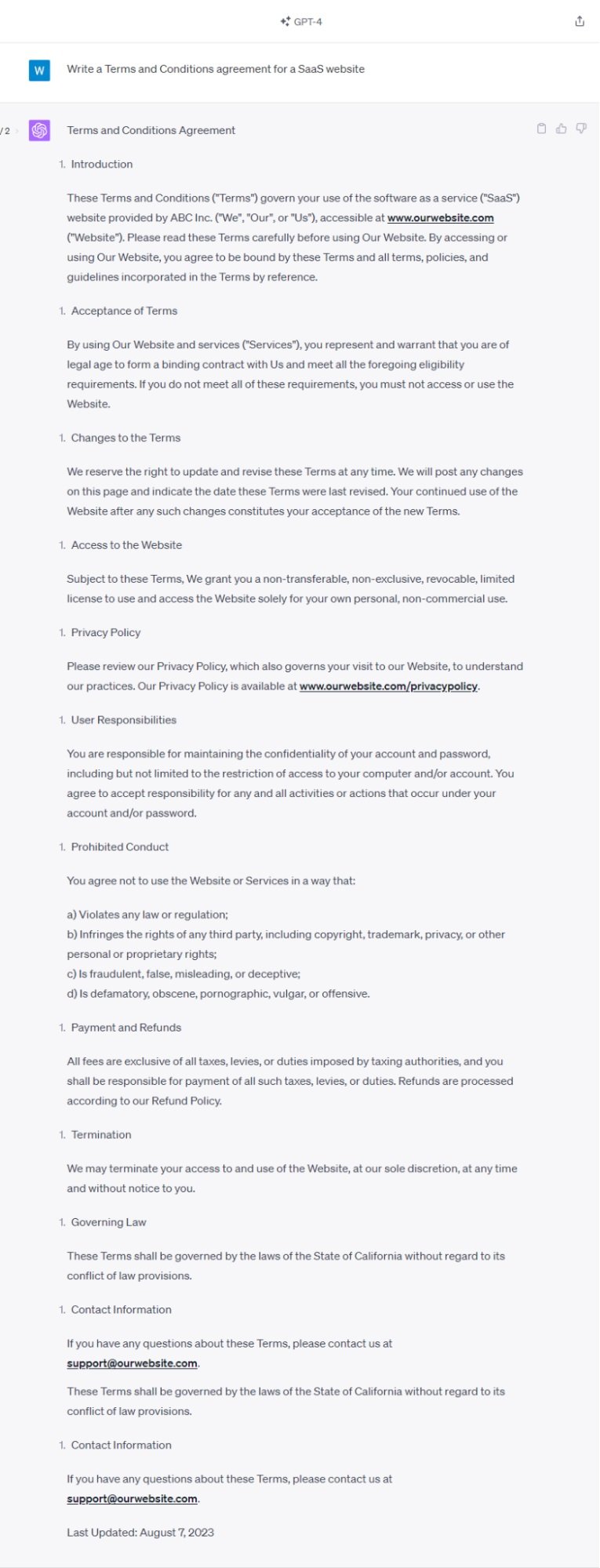
ChatGPT's output was as generic in Test 4 as in every other test we ran. A few clauses that set it apart and made it specific to SaaS websites were the following:
- Prohibited conduct
- Payment and refunds
Here are the substantial differences between ChatGPT's SaaS T&C and the real-life agreement found on Ghost.org's website.
Content and Conduct Rules
- ChatGPT's Terms: ChatGPT's terms briefly mention rules around appropriate user behavior but do not elaborate on specific unacceptable conduct or the consequences of violation.
- Ghost.org's Terms: The platform's terms go into depth about appropriate and inappropriate behaviors, content restrictions, and the potential consequences of violating these rules, such as account termination.
Why it Matters: Detailing content and conduct rules protects your platform and community by setting clear expectations for user behavior. This can also legally protect your company by giving you grounds to enforce penalties for violation of these rules.
Here's what Ghost.org has in its Terms:
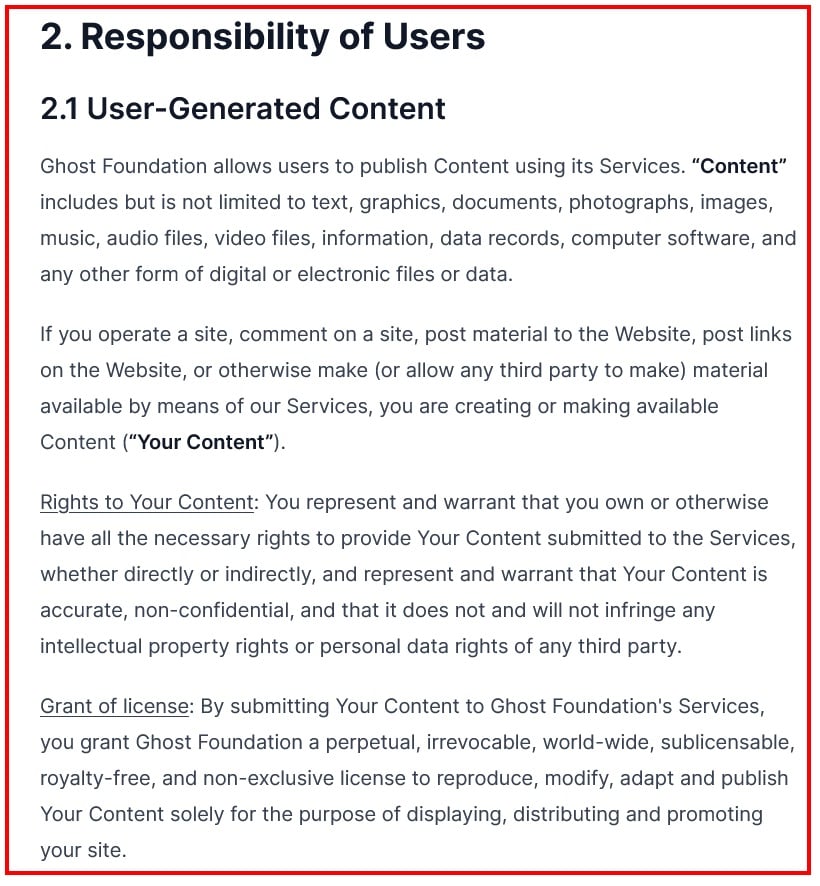
Intellectual Property Rights
- ChatGPT's Terms: The terms assert that the company retains all rights, titles, and interests in and to the Service, including all associated intellectual property rights.
- Ghost.org's Terms: The terms here also mention that they own or have licensed all rights, title, and interest in the platform and its content. They also warn that unauthorized use of the content may violate copyright, trademark, and other laws.
Why it Matters: This section is important to protect the company's assets. A clear statement about who owns what helps prevent misuse of the app and its contents.
Here's what Ghost.org has in its Terms:
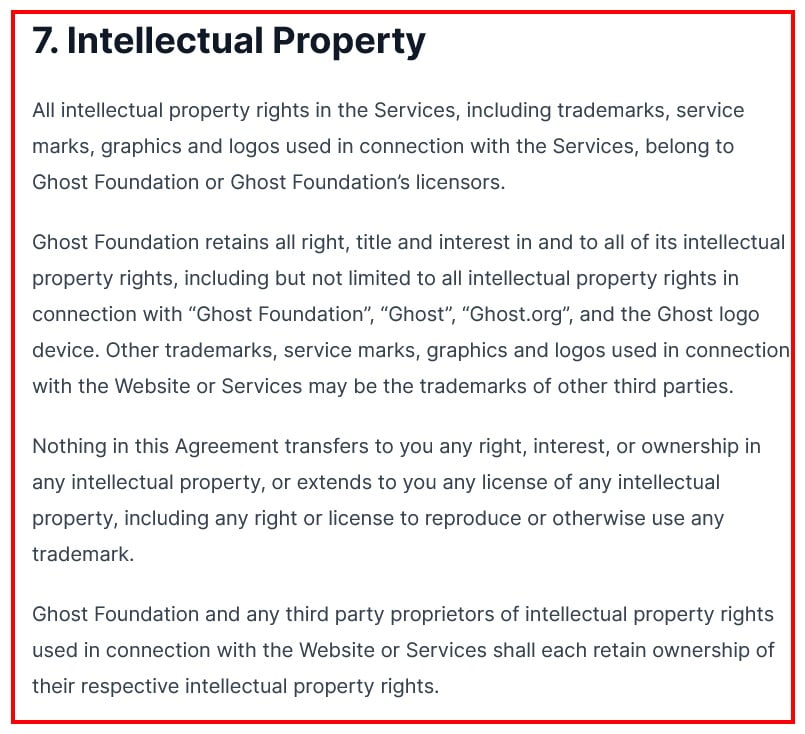
The Verdict on Test 4
As with every other test we conducted, there are several areas where ChatGPT's clauses could be improved by providing more detailed, specific information.
Why Should You Be Cautious When Using ChatGPT for Terms and Conditions Agreements?
Upon evaluating our experiments with ChatGPT, it's clear that caution is of the essence when using AI because it doesn't create full, robust, customized and adequate Terms agreements.
As of now, the potential for creating a customized, compliant agreement falls beyond the reach of ChatGPT without substantial user involvement.
Summary
Our tests conclude that the use of AI is not the most efficient or cost-effective approach for creating legally compliant Terms and Conditions agreements in its current form.
To produce a legally valid Terms and Conditions agreement, ChatGPT requires substantial user involvement, potentially translating into numerous work hours for an employee unfamiliar with legal requirements.
Once you've collated all the legal information unique to your company for input into ChatGPT, you've practically composed half of a compliant Terms and Conditions agreement. As such, the process is neither faster nor easier, and depending on your knowledge of data privacy laws, a legal review may still be necessary.
Furthermore, AI-generated Terms and Conditions agreements do not update automatically to reflect changes in legal requirements.
On the other hand, employing TermsFeed's Terms and Conditions generator or using one of our templates circumvents these issues entirely.
Constructed with compliance at the forefront, unlike ChatGPT, the choice between the two platforms for protecting your business interests becomes straightforward.

Comprehensive compliance starts with a Privacy Policy.
Comply with the law with our agreements, policies, and consent banners. Everything is included.
